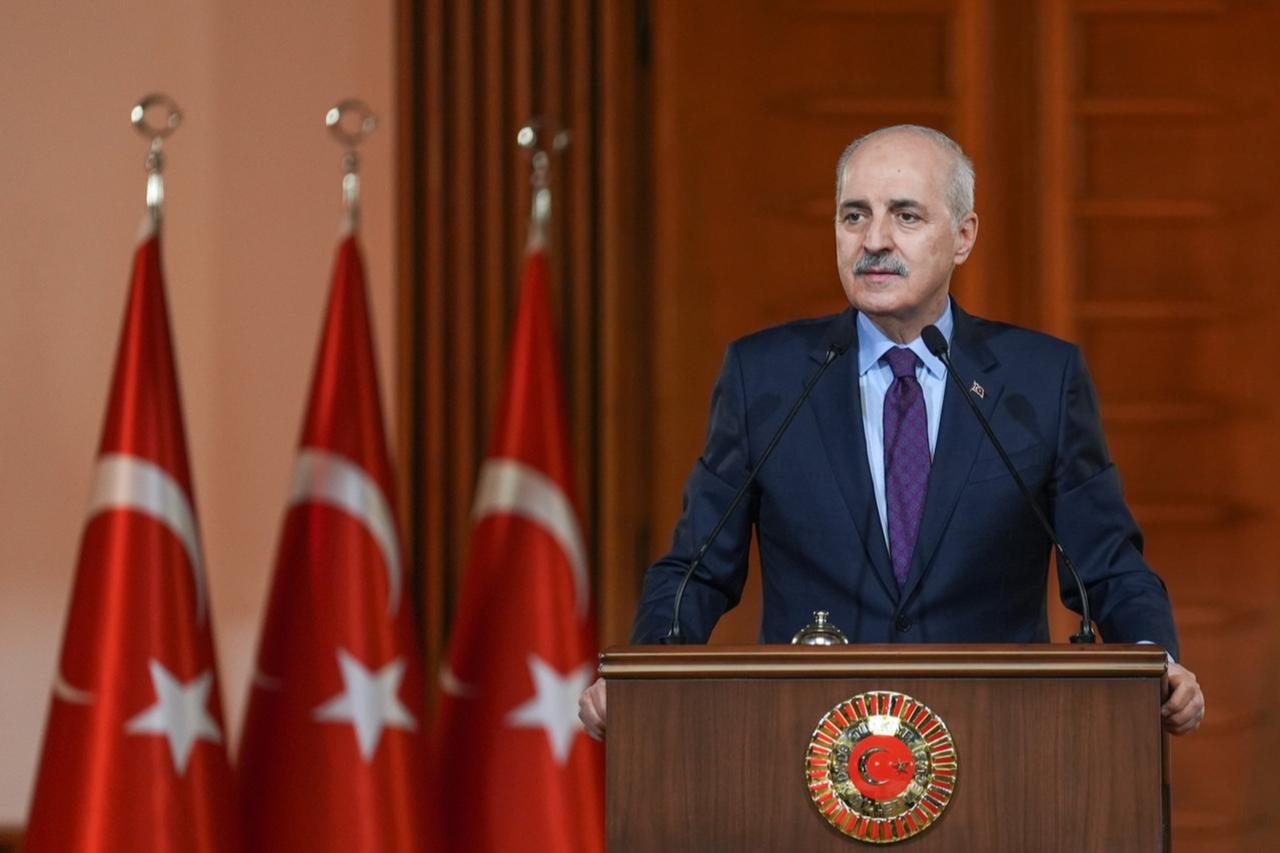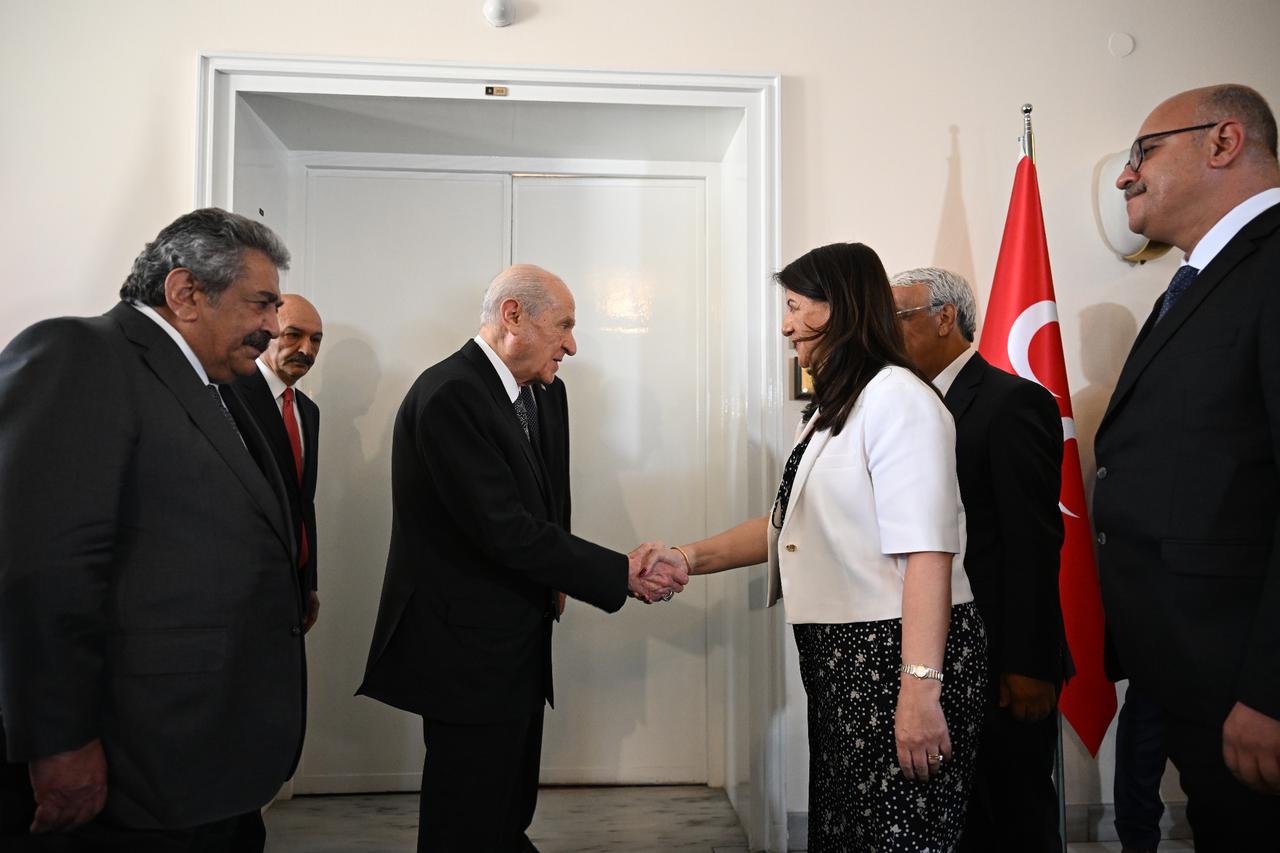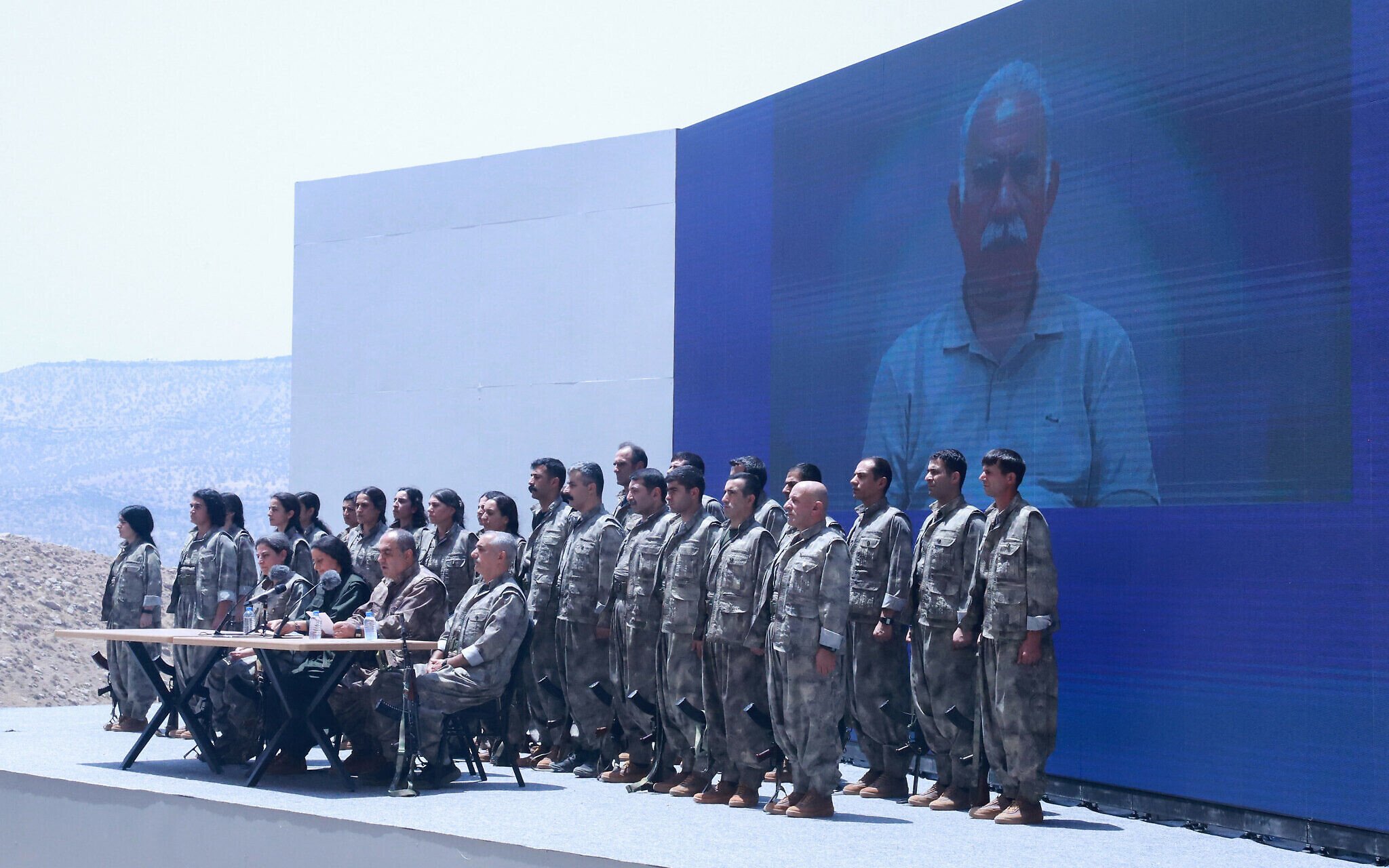
On Friday, Turkish Parliament Speaker Numan Kurtulmus intensified consultations with parliamentary groups to formalize a commission tasked with shaping the legal and political roadmap for the post-PKK disarmament process. The commission is expected to be launched by a presidential decision rather than parliamentary legislation, meaning it will not be a standing committee but a flexible, temporary body similar to the past Constitutional Reconciliation Commission.
However, opposition parties, including the Republican People’s Party (CHP) and the pro-Kurdish Peoples' Equality and Democracy Party (DEM Party), are pushing for a permanent, law-backed standing committee with formal authority.

The commission is a specially formed parliamentary body created to involve Türkiye's legislature directly in managing the unfolding process with the PKK terrorist group, following the group’s symbolic disarmament declaration on July 11.
By including representatives from multiple political parties, the commission aims to foster political consensus, ensure transparency, and guide the transition from cease-fire to lasting peace and social stability. This approach seeks to firmly anchor the process within Türkiye's democratic institutions and legal framework. The idea of the commission, like the overall process, originated with the leader of the Nationalist Movement Party (MHP), Devlet Bahceli.
Although CHP has joined the commission, it has announced that its participation is conditional. CHP leader Ozgur Ozel stated that their continued involvement will depend on the outcomes of ongoing legal proceedings against their affiliated mayors.
Most party groups back a commission modeled after Parliament’s 35-member Public Enterprises Committee. The Justice and Development Party (AK Party) floated multiple options but emphasized the importance of an effective working body.
Parties also seem aligned on requiring a qualified majority for the commission’s decisions, with the AK Party proposing a three-fifths threshold.
Under the current proposal, the commission will have 13 members from the AK Party, seven from CHP, and three members each from the DEM Party, the MHP, and the New Path Party (Yeni Yol Partisi). The opposition Good Party (Iyi Party) has opted out of the process and will not send any members.
Choosing to stay out of the process, the Iyi Party aligns its nationalist-secular voter base with a political bet that the initiative may falter.

The AK Party refers to the process as “terror-free" Türkiye, while DEM frames it as a “Peace and Democratic Society” initiative. The MHP has proposed “National Unity and Solidarity Commission,” while CHP favors “Commission for a Terror-Free Democratic Türkiye.” The DEM Party rejects the AK Party’s terminology, underscoring the political sensitivities tied to framing and perception.
David L. Phillips, director of the Program on Peace-building and Rights at Columbia University, draws on experiences from other post-conflict settings, noting: You start with the technical tasks such as disarmament. Then you need to have a broader program of reintegration that includes economic development and reintegrating fighters into the society as a whole.”
He also urges that the technical side and reintegration “are different baskets that have to work together in order to achieve a greater goal.” The commission’s main task will be facilitating those two baskets.

The first item on the commission’s agenda is still controversial, but according to DEM officials, it should be a reintegration law, whether it is called societal reintegration, homecoming, or return to the homeland. Party officials recalled that after the July 11 disarmament gathering at the Casene Cave, most of the 30 participants returned to their previous locations. Had a law been in place, some might have returned to Türkiye, giving the process added momentum, they argued.
The DEM Party side also argued these were among the PKK’s core demands when it announced its disarmament step, along with potential amendments to Türkiye’s execution and counterterrorism laws.
Sources say DEM has already conveyed these priorities to both President Recep Tayyip Erdogan and MHP leader Bahceli.
Parliament Speaker Kurtulmus has been leading talks with party groups to set up the commission. The current plan reflects the government’s position: the commission will be established by presidential decision, bypassing formal parliamentary legislation. This would make it a non-permanent structure—closer in function to the now-defunct Constitutional Reconciliation Commission—tasked with drafting recommendations rather than wielding direct legislative power.
The opposition bloc, particularly the Kurdish-oriented DEM Party and the Republican People’s Party (CHP), sees this as a major shortcoming. They argue that a body handling such a sensitive and consequential issue as the reintegration of former PKK terrorists and the legal framework of a post-conflict process must have a permanent, law-mandated status within Parliament. For them, anything less would signal a lack of political commitment and institutional weight.
The AK Party and its coalition partner MHP, defend the temporary model, emphasizing the need for flexibility and political maneuverability. They prefer a commission that can propose ideas but not bind Parliament to specific legislative actions, keeping the process under political control rather than parliamentary oversight.
This model, according to AK Party officials, allows the government to calibrate its response based on developments on the ground, particularly the PKK’s fulfillment of disarmament pledges. The approach also avoids triggering political backlash among nationalist constituencies wary of formalizing a process with Kurdish actors.
The DEM Party expects the commission to draft proposals over the summer, aiming for parliamentary debates starting in October. The AK Party remains cautious, signaling that further legislative moves will depend on security assessments, especially reports from the National Intelligence Organization (MIT) and other security agencies monitoring the PKK’s compliance.
The commission will also serve as a coordination platform for the disarmament process on the technical side as well.